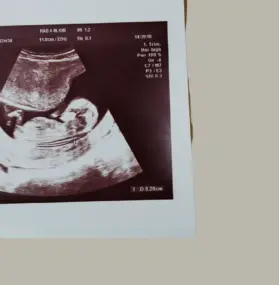- by Carrie Shaw
- on September 17, 2025
(Not a reader? Take a listen instead ⇓)
I don’t know about you but sometimes I feel bad for not knowing then what I know now.
Bad, as in, I wish I’d known better, I wish I had known more, I wish I had known sooner or responded better or chosen differently.
But here’s the thing. We only wish this because of what we know now. Which is to say, in all the time that’s passed from then until now, we’ve learned something, we’ve grown, we’ve become more equipped, less reactive, we can make better choices only because of what we’ve experienced in the past, both good and bad.
This is the value of life experience, it’s what we often call the beauty of hindsight; those lessons from life that can be seen today only because they’ve been learned from what has been experienced in the past. In order to gain the wisdom needed for our tomorrow, we had to learn from experiences, both positive and negative, in our yesterday.
If I’m Honest…
There are things in my life that I look back on and still blush over. There are things said and unsaid in my past that still cause me regret when I recall them today. There’s definitely a sense, at times, that if only I could go back and do that thing over, things would be different.
But do you know what? Things probably wouldn’t be any different. Because that was then and this is now. I’m not the same person I was yesterday or the day before that. Life is changing me.
I may face a similar situation in the future and have learned enough from the past in order to do things differently. I perhaps wouldn’t make the same choices or mistakes today as I did then, but only because those choices in the past taught me differently and made me different.
But I can’t change the past, no matter how much I wish I could. I can’t take today’s insights into yesterday’s mistakes, I can only use today’s insights to grow tomorrow’s wisdom.
And perhaps I shouldn’t wish to change the past. Maybe I should be learning to make peace with it. Maybe I should be more thankful for yesterday’s mistakes, as strange as that seems, because of the valuable lessons I learned, not just about life but also about myself.
We often look back on our past, our mistakes, or our decisions and hate ourselves for them. And while I’m not for a second suggesting we glory in sin or our mistakes (Romans 6:2), these things can nevertheless be seen from a different perspective – as powerful lessons from life – and what we learn from them can be used for good in the future. We can take the pain or regret or shame that spills over from the past and use it to empower us to do better today, to choose more wisely, and love more deeply.
We do not need to be only the sum of all our mistakes or regrets, we can be so much more than that.
Cancel Culture < Grace
I’ve been thinking a lot about cancel culture and how it’s the antithesis of grace. The current climate seems so quick to cancel others, on account of one mistake, one indiscretion, one ill-formed thought spoken out loud, one ugly sentence spoken out of the season. Yes, those things are disappointing when they happen, and sin is still sin. We ought not to shy away from calling out sin and calling each other to repentance, reparation, and renewal.
But in others, and, specifically in the light of this article, in ourselves, our mistakes only become who we are when we embrace and celebrate them. When we show remorse, or regret, when we apologise and repent, and commit to doing better in the future, our mistakes become valuable building blocks to a better version of ourselves. Grace towards ourselves or others becomes the fertile ground for spiritual renovation and renewal. It is in our weakness that God’s power is perfected (2 Corinthians 12:9).
We cannot condemn sin or mistakes or the things in our past that we’re ashamed of without also offering ourselves the much-needed balm of grace that dispenses kindness, favour, advocacy, and forgiveness. We hold both in tension; the disappointment of our (or life’s) failures with thankfulness for what we learned from these experiences; the grief of sin that stains alongside the healing embrace of grace that cleanses.
I can recall some unthoughtful words I once spoke about someone, a criticism of sorts I suppose. I think about these words often, actually, and still deeply regret speaking them. While I can give all sorts of reasons as to why I said them and argue that my underlying feelings were justified, I still wish I hadn’t said them. They weren’t particularly kind or graceful and, mostly, I can look back now and see that, in that moment, I was a terrible witness for Christ. The way I spoke and acted was so detrimental as an example of discipleship to others and was deeply hurtful to another person.
Although I felt I was on the receiving end of critical words, instead of taking a beat, thinking the situation through, and responding with grace, I simply responded in kind. There were a million different ways I could have probably responded but the reality is, at that moment, I didn’t. Of course I wish I could do it differently now but I can’t. I can only apologise (and I have done so), learn from this mistake, and use it as wisdom for tomorrow.
I learned four valuable lessons from that experience, which I have endeavoured to implement today.
Words Matter
Words matter, even when said in the heat of the moment or when we believe our feelings are justified. There’s a way to speak truth but do so in love, in a way that isn’t harmful or wounding. Just because we’re upset, or feel maligned, criticised, or challenged doesn’t mean that the way we speak doesn’t matter.
I think we have all been taught to avoid having difficult conversations as a way of securing some kind of false peace. What we really should have been taught is how to have civil conversations with those very different from us, in a way that communicates our feelings or opinions well, without wounding the other.
I learned that words matter. And that I needed to guard my heart for it’s out of the heart that the mouth speaks (Proverbs 4:23, Luke 6:45).
The second thing I learned flowed from this:
I Belong To Jesus
I was painfully unaware of just how important other people’s opinions and validation were to me. I had long considered myself to be a bit of an island, quite secure in my own company, likably sociable when necessary, and generally unaffected by others’ criticisms. But this piece of stray criticism, directed at me in a time of deep upheaval in my personal life, struck like a barb in my soul. I learned at that moment just how affected I actually was by what other people thought of me and how little security I was actually placing in Jesus’s opinion of me. It came as a shock and it really rattled me.
I had to seriously rethink where I was getting my validation from. I had to reevaluate what was guarding my heart. Was my validation placed in Jesus, the rock of the ages, or did I have it resting on the unpredictable, shifting sands of popular opinion? Was I living in the freedom of Christ or stifling under the suffocating need to please people?
I needed to get more intimate with Jesus and this was an invaluable lesson to learn.
There Are Consequences
Every choice, every decision, and every failure has consequences. Sometimes we or others do or say things that have irrevocable consequences in our life. And sometimes those consequences are painful and hard to live with. Other times, those consequences prove to be God moments, times when our focus was redirected or the direction of our life shifted, for good. Sometimes, they’re both.
Sometimes that regretful indiscretion spurs a greater commitment to faithfulness in our relationship. Sometimes that reduced income refocuses us on what we really need in life. Sometimes that failed leader redirects our gaze towards the One we should really be following. Sometimes that disappointing verbal exchange convicts us to do better with our words. Sometimes that closed-door signals a new beginning.
And in every choice, in every consequence, Jesus is with us in it all. Yesterday, today, tomorrow, he is the same. He’s been with us in our worst moments – yesterday’s regrets, he’s with us in our current circumstances of fear, doubt, growth, and joy – today’s insights, and he’ll be with us in our greatest triumphs – tomorrow’s wisdom.
Don’t Beat Yourself Up About The Past
Choices have consequences and sometimes those consequences are negative, with reverberations that echo down through our and others’ lives. You only need to look at the life of King David to realise that one poor decision can cause ripples of pain and fracture in individuals and families for generations. Where we can, we ought to make reparation and we should, rightly, regret our part in consequences that cause pain or injury to others.
But I think we also need to draw a line in the sand. We need to learn to forgive ourselves, to afford ourselves the same kind of grace that God so willingly offers to those who repent. We are not that terrible decision we made five years ago, five months ago, or five days ago. We don’t have to stay in that place or be that person.
Jesus’ sin-covering sacrifice means that we get to start each day new, means that we are washed clean and made perfect in his righteousness and that, although we are weak and often stumble, God is committed to completing His good work in us (Philippians 1:6). Jesus died for us, not because we weren’t at fault but precisely because we were, sinners completely unable to save ourselves. God is not surprised by our weakness or our failure; it was part of the equation in the sending of His Son.
“So we do not lose heart. Though our outer self is wasting away, our inner self is being renewed day by day. For this light momentary affliction is preparing for us an eternal weight of glory beyond all comparison, as we look not to the things that are seen but to the things that are unseen. For the things that are seen are transient, but the things that are unseen are eternal.” | 2 Corinthians 4:16, ESV
We are like clay jars in which this treasure is stored. The real power comes from God and not from us. We often suffer, but we are never crushed. Even when we don’t know what to do, we never give up. In times of trouble, God is with us, and when we are knocked down, we get up again. We face death every day because of Jesus. Our bodies show what his death was like, so his life can also be seen in us. This means that death is working in us, but life is working in you.” | 2 Corinthians 4:7-8 CEB







Thanks for your article as usual, Carrie. I have trouble when exhorted “we should…” or our purpose is “ to try harder..” For me, the points you made about the Father doing the work and our true self being allowed to come to the fore, are a matter of accepting and acknowledging that we are week and need the Father to take control. For me, sin is the actual belief that I can do this myself.
As you also infer, admission of guilt and seeking forgiveness are the only approach that works.
Thanks again.
Ron.
Thanks again Ron for your comments. Yes, it is all Him – “Christ in me, the hope of glory”, lest anyone should boast! In no way does this absolve us from putting our hand to the plow, or, to borrow the words of the parable, encourage us to ‘hide our talent in the ground’, but in this, we acknowledge that we are weak and any strength or success comes from the Spirit working in us and through us, to complete the good work that God has started. Grace rather than Works is a critical element in transforming our view of the Christian life. Blessings.